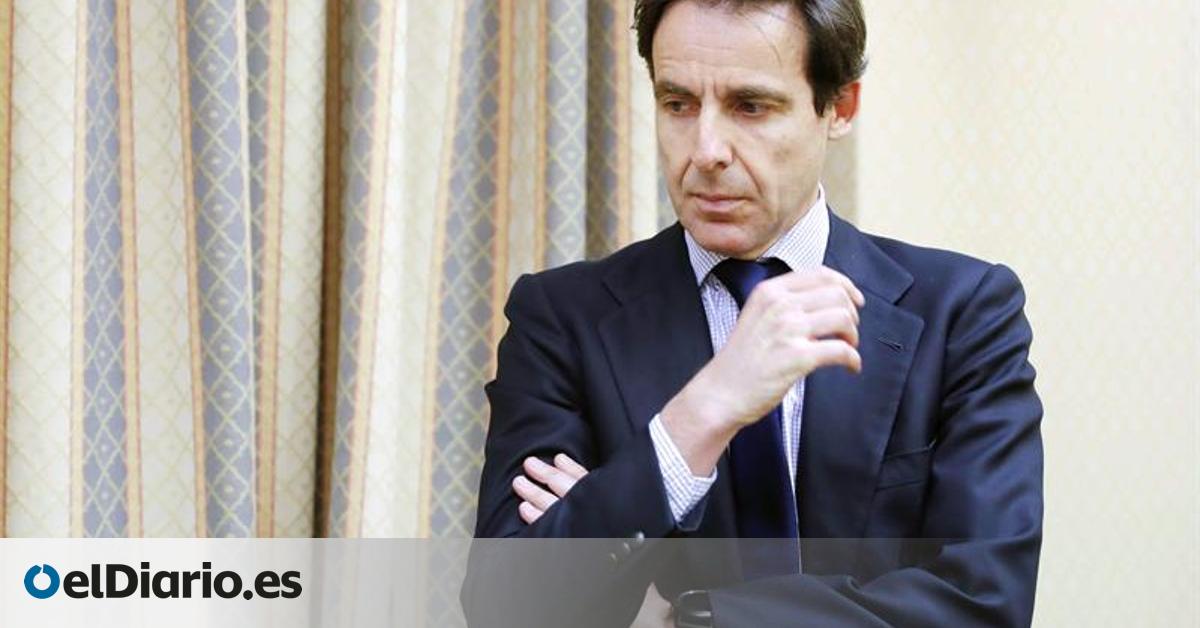
The Criminal Chamber of the National Court has agreed to definitively file the case against the businessman Javier López Madrid, the retired commissioner José Manuel Villarejo and his partner Rafael Redondo for the alleged order that the former gave to the police officer to harass the Dr. María Elisa Pinto due to a personal conflict. This is a different cause than the harassment and assault that the commissioner under López Madrid allegedly committed against the woman. The National Court was only investigating the hiring of a practicing public official, Villarejo, by the businessman.
In an order, collected by Europa Press, the magistrates of the Fourth Section annul the order to open the oral trial and agree with the businessman’s defense, ensuring that Dr. Pinto’s lawyer is not entitled to accuse for a crime of bribery, and as there is no other accusation in the case.
The case of the contract from López Madrid to Villarejo was a piece that Judge Manuel García Castellón opened at the proposal of the Prosecutor’s Office within the macro-case against the commissioner and that, for years, ran parallel to the investigation of a Madrid court that does address the nuclear incident, the strategy of harassment, coercion and the aggression allegedly orchestrated by López Madrid and for which the Prosecutor’s Office requests thirteen years in prison for the police officer and the businessman.
For the judges of the National Court, the solution could not “be other than that requested by López Madrid’s defense,” which was to decree “the nullity of the proceedings, specifically the order to open the oral trial, and the dismissal and archiving of the proceedings, as the private accusation, the only one that interested the conviction” of the accused, lacked legitimacy.
This decision comes after, last November, the National Court agreed to suspend the trial that was going to start against the three accused. He did so, specifically, due to the illness of Dr. Pinto’s lawyer, the court announcing that it would resolve “the previous issues in advance of the holding of the new trial.”
Already then, sources from López Madrid’s defense pointed out that, in the face of the previous questions, they would maintain that the private accusation, the only one that accuses in this procedure, was not enough to take someone to trial when it comes to crimes of “interest diffuse”, since in the event that this bribery had existed, no particular interest was harmed, but, in any case, the general interest of the Administration of Justice.
According to the order, López Madrid’s defense argued that it was not possible to open an oral trial “to the extent that the Public Prosecutor’s Office is interested in dismissal, there is no popular accusation and the private accusation does not have legitimacy either as an offended party or as a harmed party.”
Furthermore, he added to this that in this separate piece of Tándem it was going to be tried whether López Madrid “incurred in the commission of a crime of active bribery” and that Pinto “appeared invoking an alleged condition of private prosecution through a document dated October 2 of 2019”. “This appearance was based not on the present procedure, but in relation to other different pending judicial processes (DP 487/2014) of the Court of Instruction number 39 of Madrid,” the defense added.
And he explained that Pinto did not have the status of either being harmed by the crime of bribery or being offended, because “in these cases of crimes against the Public Administration, private accusation is not feasible, but only the popular one,” which Podemos held until He gave up exercising it in December 2022 in the case.
The court begins to assess the claim of López Madrid’s defense and remembers that the Prosecutor’s Office actually requested, even in June 2022 during the investigation, “the dismissal of the proceedings, not only because there was insufficient evidence of the commission of the crime of bribery, but also because they were already the subject of judicial investigation (…) in another different case.”
And after basing his decision on various previous rulings of the Supreme Court, he highlights that “the decision to expel the private prosecution from the process, at this procedural moment, after having been considered as such throughout the investigation and intermediate phases of the “The same is not detrimental to the right to judicial protection thereof, nor can it be classified as untimely or surprising.”
In fact, he recalls that Pinto’s own defense at a given moment “and realizing that it was a controversial issue to say the least” the fact that he accused of the crime of bribery, “was subsidiarily interested in the appearance as a popular accusation, to avoid his expulsion.”
Regarding this possibility, the court makes it clear that “the exercise of popular action is not appropriate for the defense of individualizable or individualized legal situations, but for the defense of supra-individual interests, whether collective or diffuse.”
In addition, it mentions the procedure followed in the Madrid courts for coercion of Pinto and emphasizes that “if the factual account of both procedures is carefully examined, the similarity and causal relationship from means to end is evident, as well as the locative and temporal nature of the events.”
And for this reason, “since, at least, a large part of the facts mentioned in this procedure are juxtaposed with the investigation carried out before the Investigative Court number 39 of Madrid (…) no material defenselessness causes this expulsion from the procedure in its capacity of private accusation.”
Furthermore, the AN explains that the early closure of the criminal process “in addition to not causing defenselessness to the party (…) clears the way for the comprehensive defense of its postulates before the Criminal Court number 10 of Madrid, in the face of the long pilgrimage that I would still have to endure in the present case, due to the impossibility of scheduling the oral trial in the near future.”
Added to this is that there is a “difficulty in reaching a conviction hypothesis in the present case in view of the content of the provisional qualification document carried out by the Public Prosecutor’s Office, and the private prosecution itself, given the important obstacle accrediting some of the essential elements of bribery, such as the payment of the gift.”
Source: www.eldiario.es

